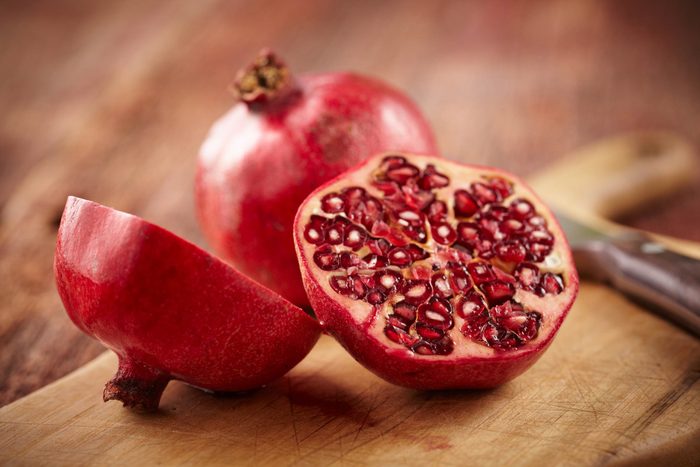
Red: Pomegranate
Strong antioxidants called polyphenols are one of the main ways pomegranates have earned their “superfood” title. In fact, pomegranate juice contains even more polyphenols than green tea or red wine. Research shows those antioxidants could protect against kidney disease, tooth plaque, and high cholesterol. But the benefits don’t end there. Pomegranates also contain almost 20 percent of your daily potassium needs, which is even more than you’d find in a banana. Potassium—one of the four nutrients the most recent Dietary Guidelines for Americans calls out as under-consumed—keeps your heartbeat normal and helps build muscle. Check out more of the world’s healthiest fruits.
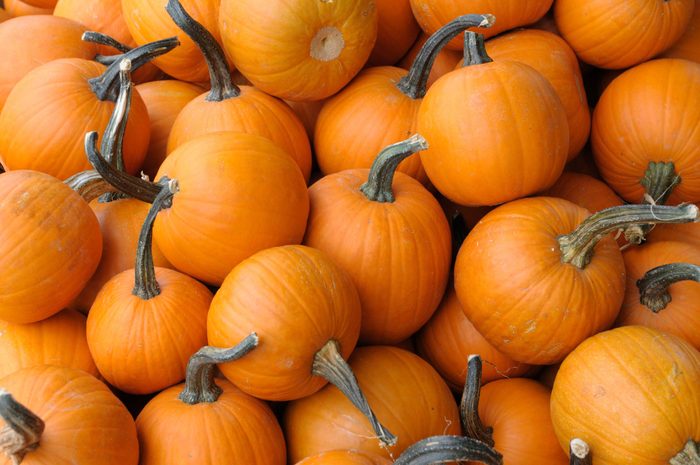
Orange: Pumpkin
Orange you glad we didn’t say “orange?” Humor aside, the health benefits of pumpkin are no joke. Beta-carotene, the pigment that gives orange foods their rich color, gets converted to vitamin A during digestion. A cup of cooked pumpkin packs in more than twice your daily-recommended intake of vitamin A, which helps your vision stay strong, along with boosting your immune system and giving you younger-looking skin. As long as you don’t get your pumpkin in latte form, it could help you lose weight, too. One cup has just 50 calories and three grams of fiber to keep you satisfied.
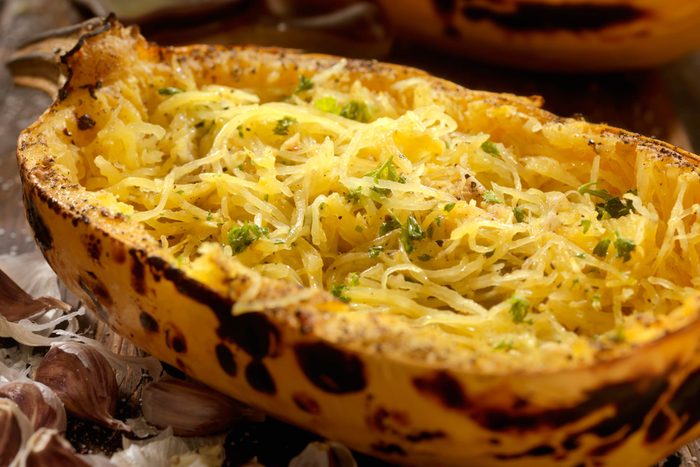
Yellow: Spaghetti squash
Sure, a 42-calorie cup of cooked spaghetti squash makes a tasty swap in your usual carb-heavy pasta recipe, but its benefits go beyond that. The squash is chock-full of immunity-boosting vitamin C, plus fiber to keep you full and regular. Don’t let the seeds go to waste, either. Munching roasted squash seeds will give you protein, plus important nutrients. One ounce contains about 20 percent each of your daily magnesium and zinc needs. Magnesium could protect against heart disease, diabetes, and osteoporosis, while zinc keeps your immune system, metabolism, and digestion running smoothly.
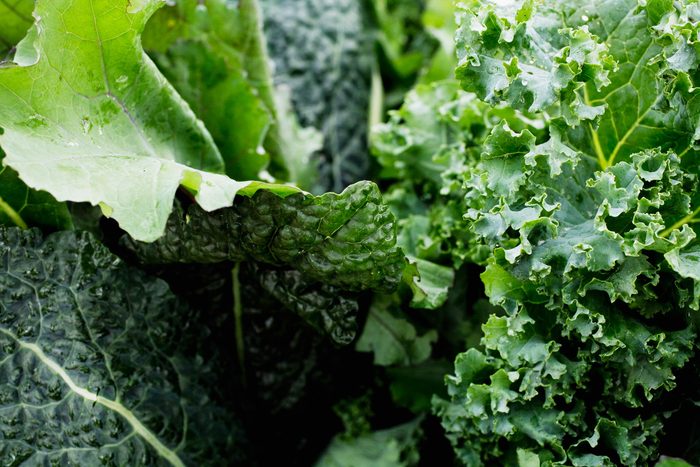
Green: Kale
Next time you hit the salad bar, make kale your greens of choice. Just a cup and a half pack in more than six times your daily needs for vitamin A, not to mention more than 9 times your daily recommended vitamin K, which your body needs to help blood clot and keep your bones strong. Kale is also a great source of iron and calcium, which can be hard to find outside animal sources. Don’t miss these signs that you aren’t getting enough vitamins.
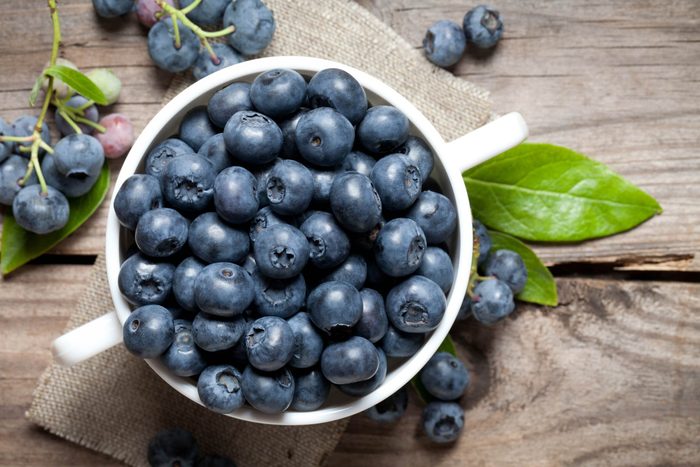
Blue: Blueberries
Bet you saw that one coming. Blueberries contain antioxidants called flavonoids, which could have heart-healthy benefits. One long-term study of 93,600 women found that those who ate the most blueberries and strawberries had a 32 percent lower risk of heart attack than those who ate berries once a month or less, even if they ate a lot of other fruits and vegetables. The berries could help brain function too. Another study found that people with mild cognitive impairments improved their memories after eating the freeze-dried powder equivalent of a cup of fresh blueberries every day for 16 weeks.
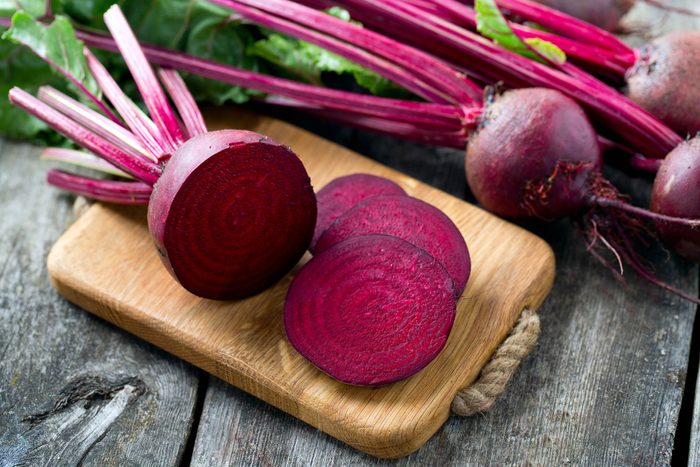
Purple: Beets
Love ’em or hate ’em, beets are a nutritional powerhouse. Their gorgeous color comes from betacyanin, which some studies indicate could protect against cancer. Beets are also chock-full of folate and betaine. Together, those nutrients could help cut down the risk of heart disease by lowering blood levels of the amino acid homocysteine. (Avoid these foods that are bad for your heart.) Plus, the root vegetable is rich in nitrates, which could help lower blood pressure and blood clotting. In fact, some athletes drink beet juice to take advantage of those nitrates, which studies have linked to better endurance, too.